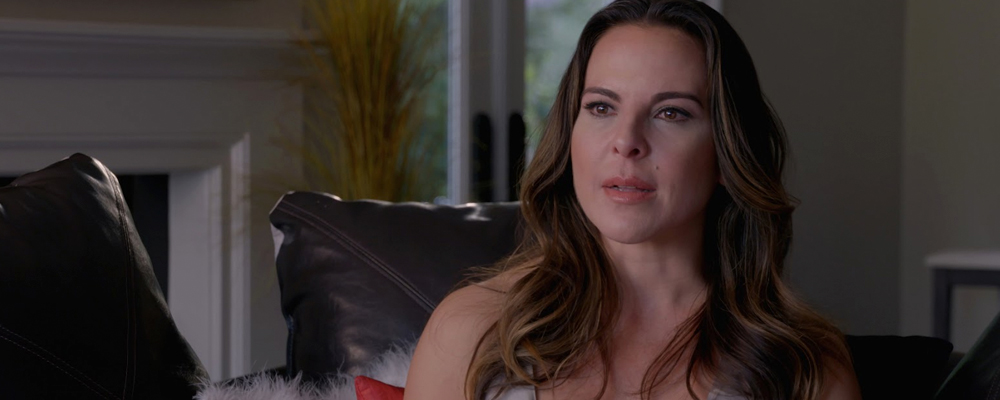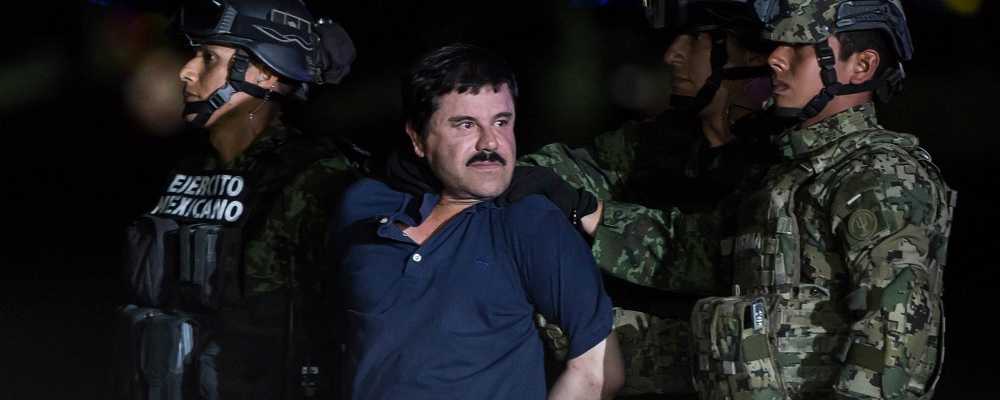‘The Day I Met El Chapo’ Chronicles Actress’s Brush With the Underworld
Alci Rengifo
There are few acts in the annals of celebrity intrigue as reckless as Kate del Castillo’s decision to fly into the Mexican wilds and meet with Joaquin “El Chapo” Guzman. Netflix’s “The Day I Met El Chapo” is a fittingly melodramatic chronicle of the Mexican star’s controversial meeting with the world’s most notorious drug lord, while accompanied by Sean Penn. Penn of course turned the encounter into a juicy Rolling Stone article, which ignited a firestorm resulting in del Castillo’s persecution by an irritated Mexican government. The three part documentary, now streaming on Netflix, is a combination of soap opera and history, crime thriller and human rights campaign. It can be a bit clunky, even insincere, but it is never boring.
The documentary starts off as an exploration of the Janus face of celebrity in Mexico. Soap opera culture shapes emotional and cultural perceptions, turning people like del Castillo (herself already the daughter of an established Mexican actor) into mega stars. But as the system itself degrades through corruption and social inequality, crime produces its own brand of fame. Like Pablo Escobar in 1980s Colombia, Guzman becomes an icon of violent success. Raised in the rough badlands of Sinaloa, Guzman rises through the drug trade to achieve wealth and clandestine influence. When the current nationwide and bloody drug war ignites in 2006, Guzman and del Castillo continue to rise in prominence. She defines the pop culture idea of narco trafficking as kitsch with her role as a glamorous mafia don in the soap “La Reina del Sur“ (The Queen of the South). One night while sipping red wine del Castillo decides to send out a tweet proclaiming her rejection of Mexico’s patriarchal traditionalism while confessing that she trusts Guzman more than aristocratic Mexican president Enrique Pena Nieto. Soon the Sinaloa cartel starts contacting her, ideas for a movie are traded, Sean Penn expresses interest, El Chapo is arrested then famously escapes, trips to meet are planned and the rest, as they say, is history. When El Chapo is recaptured mere days before Penn’s article is set to run, del Castillo suddenly finds herself in the crosshairs of the Mexican government.
As much as del Castillo attempts to make the documentary about human rights and Mexico’s long history of social injustice, she is a natural at spinning a good yarn. She sits in front of the camera, tears swelling, recounting countless moments where her blood pressure would drop at the sound of a phone call or a knock at the door. She breathlessly narrates being picked up Guzman’s men in strange cars and flying in a Cessna to a secret locale. Journalists interviewed leave little doubt in their analysis that Guzman began feeding a fantasy of possibly seducing a beautiful actress suddenly giving him her attention. Del Castillo’s descriptions of Sean Penn show the actress smitten with his charm, grit and enchanting anecdotes. They drink tequila at parties, and after the notorious meeting with the kingpin she reveals the two actors slept together.
It’s all vastly entertaining, especially because it is essentially a story where two worlds, journalism and decadent celebrity co-mingle. Even the interviews capture this flavor as the documentary cuts from figures like Mexican country star Lupillo Rivera to respected intellectual Jorge Castaneda, all giving their input on the cultural significance of this saga. Penn himself does not appear in the film but has already had his lawyers to issue public warnings about the potential for the documentary to provoke unintended, violent consequences. This stems from the running theory that it was thanks to his trip with del Castillo that authorities were able to recapture Guzman- something Penn strongly denies. A letter from Penn’s lawyer has warned Netflix that “blood will be on their hands if this film causes bodily harm.”
There is almost an unintentional dark humor coursing through the edges of the documentary only because its scenario is so unorthodox, even whacky. There is a sense that del Castillo was a bit naïve in her initial reaching out to Guzman. In her notorious tweet she suggested he begin “trafficking in love,” which seems ludicrous when we cut to pictures of the man himself. She even reveals she brought Guzman some literature “to try and civilize him.” Yet there’s little doubt that what del Castillo and Penn achieved was an impressive sort of gonzo journalism. True, her approach might be unwise, and Penn comes across as a bit of a cynic who gets the girl and then leaves her out to dry once the scandal explodes. But the insights they provide on narco culture and the state of Mexican society are revealing and valuable.
Early on, the documentary balances the celebrity angle with explorations on the class divisions of a country where the rural and urban communities are two different planets and the army can rampage at will through villages, inflicting terror in the name of fighting crime, crime in which the government itself is quite complicit. In the third episode it becomes clear that the government’s attempt at leveling charges against del Castillo following the interview have more to do her challenging the system than meeting with El Chapo. Years before the interview scandal she had already (and very publicly) criticized Pena Nieto’s wife for somehow being able to afford an $8 million mansion.
The documentary loses some gas near the end, as it abandons the angle of what the two actors learned while meeting the drug lord and instead focuses on del Castillo recasting herself as a rebel against the system. But it’s an engaging four hours, spiced with scandal, Mexican celebrity culture, actors hanging out with fiends and lessons learned in who to tweet.
“The Day I Met El Chapo” premieres Oct. 20 on Netflix.



